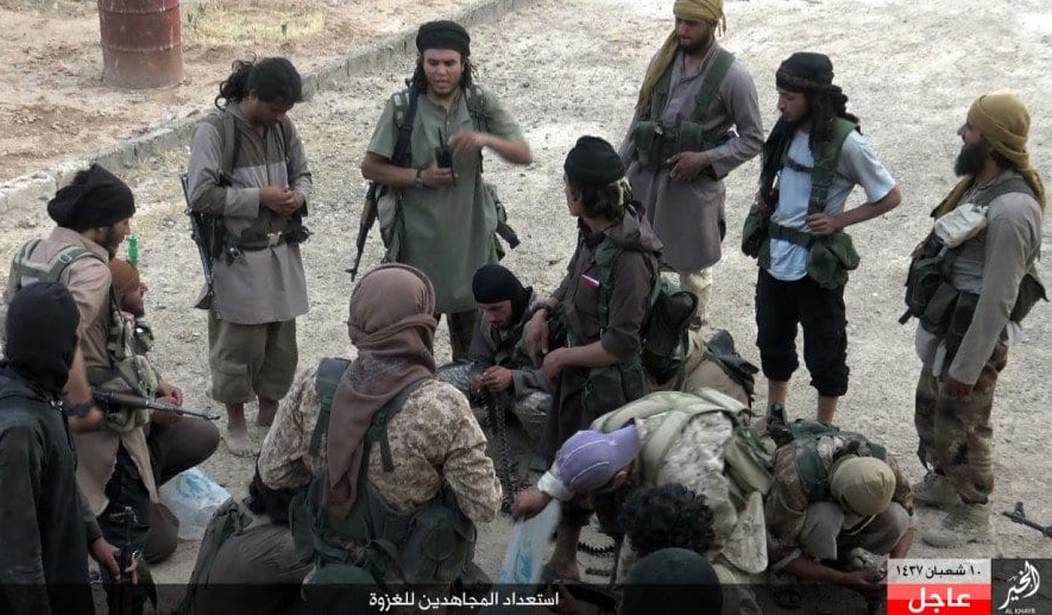The Taliban have a Department for the Prevention of Civilian Casualties as they try to curry favor with residents in the Afghan neighborhoods they attack.
Now, the Islamic State is touting their Central Office for Investigating Grievances and its role “eliminating the injustices that might afflict both the subjects and soldiers of the Islamic State.”
The first edition of a new ISIS magazine — Rumiyah, meaning Rome — was released on Labor Day in English, Turkish, German, French, Indonesian, Russian, Pashto and Uyghur.
The interview with the unnamed emir of the Central Office for Investigating Grievances was first published in their weekly newspaper, Naba, the article states. Naba is distributed within territory in Iraq and Syria controlled by ISIS and is also published as a PDF online.
The head of the office postulates that “by establishing Allah’s law among the people, implementing the hudud [punishments], and holding the people back from committing transgression, they are prevented from doing injustice to one another.”
He claimed it’s even more important “when it comes to the soldiers of the Islamic State, given the trust which the leaders have burdened them to carry in this regard.”
ISIS has previously detailed their organizational structure in 35 provinces. They say people can complain at the provincial level, then that’s kicked up to the Central Office for Investigating Grievances if warranted or kept at the local level.
The head of the office claimed the complaint and appeals process is an “effort to open the door for the people to put forth their grievances against any individual or body in the Islamic State, and removed any factors preventing their cases from being resolved under the pretext that the body with whom cases are lodged is not responsible for investigating them, or that no one has any power over the accused party.”
The group known for summary executions and collective punishments for villagers said once they’ve “received a case and registered it, if there is a sense that injustice might have occurred in the case based on the complainant’s claims, we investigate the case, otherwise we dismiss it immediately.”
The office makes judgments “either redressing the grievance if the case is established, punishing or disciplining the wrongdoer, or dismissing the case if it becomes apparent that the accuser’s claims are false,” the emir said.
The examples of cases underscore their propaganda effort to battle stories of woe from fighters who came to the Islamic State only to find it’s not all that it was cracked up to be.
“A leader transfers one of the soldiers under his command to another area due to his need for him in that area, either for a position that needs to be covered, or because of a need for his specialization, or for some similar reason, and the soldier considers this unjust because it will take him far away from his family and place of residence,” he gave as one example. “A leader transfers one of the soldiers under his command to another area as a form of discipline for an act of negligence or a mistake, or as a pre-emptive measure to prevent the occurrence of something the leader is trying to avoid, and the soldier considers this unjust because the disciplinary punishment is not in line with the mistake he committed or because he doesn’t think he made a mistake to begin with.”
The first case would be dismissed because the soldier is supposed to be obedient, he said. The second case would be eligible for review to “determine the actual presence of injustice.”
The head of the office asks for tips “for among those wronged may be the weak, and among them may be an ignorant person who does not know how to forward his grievance or go about seeking his right.”









Join the conversation as a VIP Member